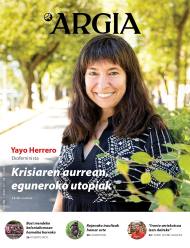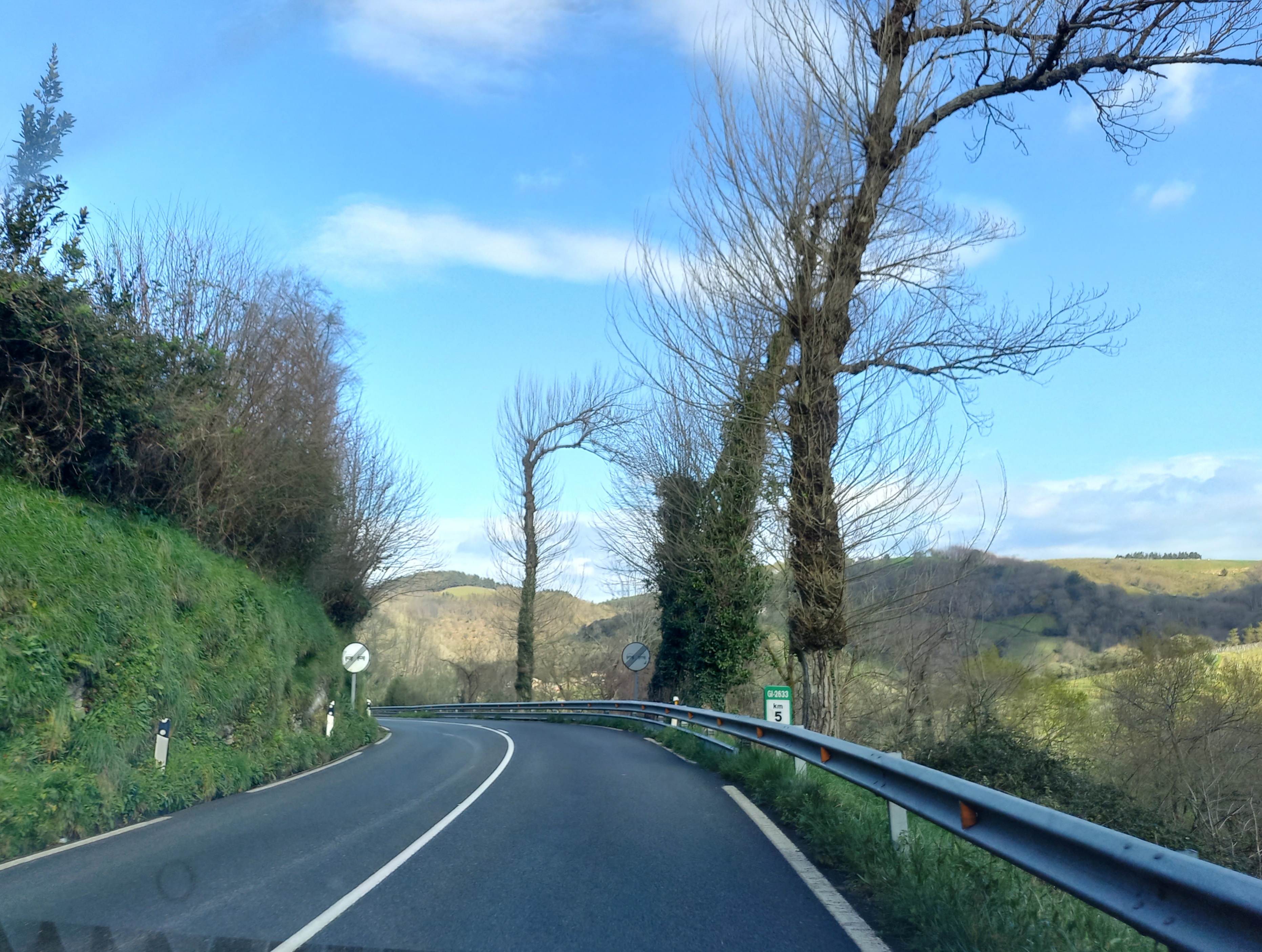New wave from Scotland?
Time passes quickly, even more so after two years so slow and weird by the pandemic. The Scottish Prime Minister, Nicola Sturgeon, announced at the end of June his intention to conduct a further consultation on the country’s independence in October 2023, which leads us to become aware that there are already nine years after the previous referendum. In 2014 the Scots had a consultation on independence and three years later, in 2017, the referendum was in Catalonia, as it is known and with a response known by the Kingdom of Spain. Both votes formed, in some way, the new wave of independence and secession in the European context, and we look at that wave with great interest from other countries where national conflicts are strong.
In Euskal Herria, the wave influenced a lot, especially the Catalan catfish. I am not referring specifically to the referendum and solidarity, but to the processes initiated in both countries to arrive at these votes and to the theoretical innovations: new justifications for independence, to underline the population together with the nation, to delineate the nation with new and open forms, to place democracy at the centre of the debate, etc. In Euskal Herria, in this context, there was optimism regarding the national issue, in relation to the transformation that the conflict experienced here since 2011. Conferences, debates, reflections on the innovation of Basque independence were abundant and the concept of the Basque State became important.
"In the coming months, again, the process of secession and the ways of thinking about independence can gain importance."
Of all these debates and contributions, the main conclusion I think is that national identity, if you want nationalism, is not the only axis when we talk about independence or the creation of a new state. It surely cannot be denied that it is a motor, but there are many ways of understanding and interpreting it. There is nothing more to do with the forms of membership or the conditions under which they can be understood. Moreover, the multiplicity of these interpretations of the nation and nationalism should be understood as a strong point.
But, as we have said, these debates and novel contributions are no longer as novel and, paradoxically, I believe that in Euskal Herria we still do not make our contributions at all, or sometimes without understanding them. For example, when we say that we have to distinguish between nationalism and independence, even if it is analytical, what are we talking about? When it is said that we must also look for the Spanish independentists of the Basque Country (when it was?) Do we understand its implications? Sometimes, without going into this type of approach, the reaction to them has had a great force in the Basque Country. Too strong when we talk about undeveloped approaches, I believe.
These ‘new’ speeches may not be the only ways to think and theorize the independence of Euskal Herria, nor the main ones, but I also believe they are necessary. In the coming months, again, the process of secession and ways of thinking about independence can be important. Scottish or other Irish waves can be seen if movements occur. What impact will that have on the Basque Country? Who knows, but at least let us look forward to the innovations of other countries, because we need.
Bidali zure iritzi artikuluak iritzia@argia.eus helbide elektronikora
ARGIAk ez du zertan bat etorri artikuluen edukiarekin. Idatzien gehienezko luzera 4.500 karakterekoa da (espazioak barne). Idazkera aldetik gutxieneko zuzentasun bat beharrezkoa da: batetik, ARGIAk ezin du hartu zuzenketa sakona egiteko lanik; bestetik, egitekotan edukia nahi gabe aldatzeko arriskua dago. ARGIAk azaleko zuzenketak edo moldaketak egingo dizkie artikuluei, behar izanez gero.
Goizean jaiki orduko hasten dira desegokitasunak. Beharbada lotarako erabili duzun lastaira ere ez zen egokiena. Baina, ezin ba idatzi desegoki sentiarazten nauten guztiez. Horregatik, udaberriko ekinozioa –egunaren eta gauaren arteko oreka– dela eta, oraindik ere,... [+]
Ez da gauza berria politikari profesionalak gizarteko arazoak estaltzeko ahaleginetan ibiltzea. Azkenaldian Denis Itxaso -EAEko Etxebizitza sailburua- entzun dugu etxegabetzeei garrantzia kenduz eta aditzera emanez gurean bazterreko fenomenoa direla; eta Begoña Alfaro... [+]
Antropozentrismoaren aldaera traketsena eurozentrismoa izan zen. Europako mendebaldea, geografikoki, Kontinente Euroasiarraren penintsula txiki bat besterik ez da, baina lau mende luzez gertaera demografiko, teknologiko eta ideologiko batzuk zirela medio, bazter horretako... [+]
Badakizuenok badakizue, beste gauza asko bezala, euskararen aldeko borrokan ere politikoek, eragile batzuek eta hedabideek beraien antzezlana saldu nahi digutela, benetakoa balitz bezala.
Lehen urtean pozik jaso nuen, "Euskaraldi" hau. Zer edo zer zen, ezer ez zegoela... [+]
Euskarak, mendez mende, zapalkuntza sistematikoa jasan du, eta oraindik ere borrokan dabil egunerokoan bere leku duina aldarrikatzeko. Hizkuntza baten desagerpena ez da inoiz berez gertatzen; planifikazio politiko eta sozialak eragiten du zuzenean. Euskaldunoi ukatu egin izan... [+]
Oldarraldia ari du EAEko administrazioa euskalduntzeko erabakien aurka, berriz ere, enegarren aldiz. Oraingoan berrikuntza eta guzti, espainiar epaitegiak eta alderdi eta sindikatu antieuskaldunak elkarlanean ari baitira. Ez dira izan akats tekniko-juridikoak zuzentzeko asmoz... [+]
Igande gaua. Umearen gelako atea itxi du, ez guztiz. Ordenagailu aurrean esertzeko momentua atzeratu nahi du. Ordu asko aurretik. Zazpietan jaiki da, eta, bihar ere, astelehena, hala jaikiko da. Pentsatu gabe ekiten badio, lortu dezake gauak pisu existentzialik ez izatea. Akats... [+]
Naomiren etxeko eskailerak igotzen ari dela datorkion usainak egiten dio memorian tiro. "Ez da sen ona, memoriaren eta emozioaren arteko lotura da. Baldintzapen klasikoa", pentsatzen du Peterrek bere golkorako Intermezzo-n, Sally Rooney irlandarraren azken eleberrian... [+]
Joan den urte hondarrean atera da L'affaire Ange Soleil, le dépeceur d'Aubervilliers (Ange Soleil afera, Aubervilliers-ko puskatzailea) eleberria, Christelle Lozère-k idatzia. Lozère da artearen historiako irakasle bakarra Antilletako... [+]
Aspaldi pertsona oso zatar bat ezagutu nuen, urrun izatea komeni den pertsona horietako bat. Bere genero bereko pertsonengana zuzentzeko, gizonezkoengana, “bro” hitza erabili ohi zuen. Edozein zapaltzeko prest zegoen, bere helburuak lortzeko. Garai hartatik hitz... [+]
2020. urteko udaberrian lorategigintzak eta ortugintzak hartutako balioa gogoan, aisialdi aktibitate eta ingurune naturalarekin lotura gisa. Terraza eta etxeko loreontzietan hasitako ekintzak hiriko ortuen nekazaritzan jarraitu du, behin itxialdia bareturik. Historian zehar... [+]
Hurrengo ariketa egin ezazu zure lantokian, euskaltegian edo gimnasioan:
Altxa eskua Minneapoliseko George Floyd nor den dakizuenok.
Altxa eskua Madrilgo Mame Mbaye nor den dakizuenok.
Altxa eskua Barakaldoko X nor den dakizuenok.
Mame Mbaye manteroa duela zazpi urte... [+]
2022ko ekainaren 7an, Directa-k serie luze bateko lehen polizia infiltratuaren kasua argitaratu zuen. Martxoaren 5ean, Belen Hammad fikziozko izena erreta geratu zen, polizia-argotean dioten bezala. Jada hamar dira Directa, El Salto eta El Diario-k azken hiru urteetan argitara... [+]
Horra Libération egunkariak berriki argitaratu duen idazkia:
“Bayonne” bukatu da, Libérationek “Baiona” idatziko du
Hiri baten izenaren erabilpena ohiturazkoa delarik, egunkari batean izen horren erabilpena aldatzea zaila da. Alta, irakurleen... [+]




















